Cuisine Avaliable
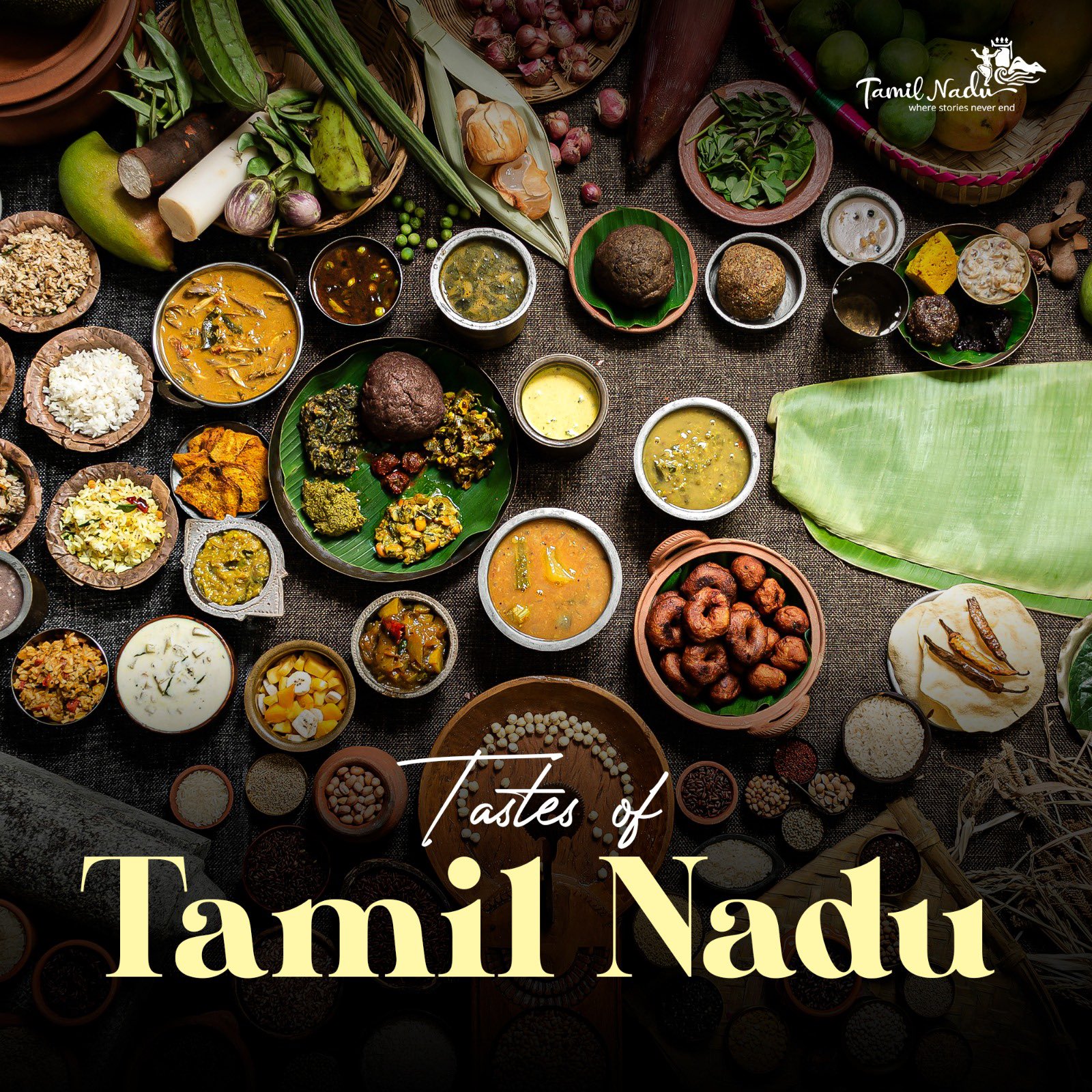
Tamilian Cuisine:
Known for its rich use of rice, lentils, tamarind, and coconut, Tamil cuisine offers a blend of flavorful vegetarian and non-vegetarian dishes like dosas, idlis, and biryanis.

Andhra Cuisine:
Famous for its fiery spiciness and tangy flavors, Andhra cuisine is known for spicy curries, pickles, and biryani, often cooked with red chilies and tamarind.

Bengali Cuisine:
Characterized by its subtle yet distinctive use of mustard oil, fish, and rice, Bengali cuisine is known for dishes like macher jhol (fish curry) and sweets like rasgulla.
Goan Cuisine:
A fusion of Portuguese and Indian flavors, Goan cuisine features seafood, coconut, and vinegar, with dishes like fish curry, vindaloo, and bebinca as staples.
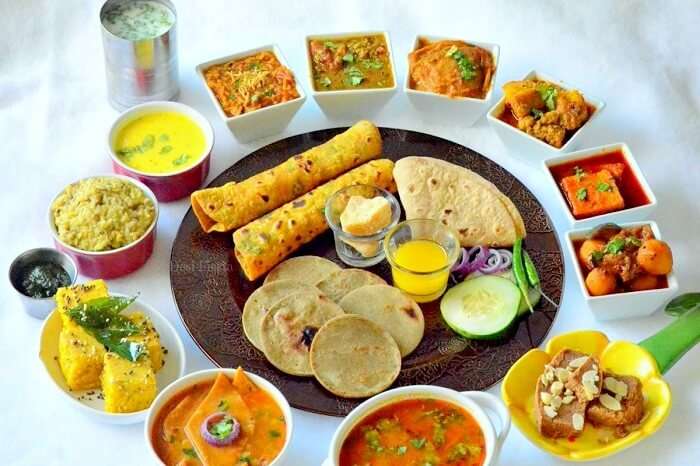
Gujarati Cuisine:
Predominantly vegetarian, Gujarati cuisine is known for its sweet, salty, and spicy flavors, with dishes like dhokla, thepla, and khandvi as popular staples.

Hyderabadi Cuisine:
A royal blend of Mughlai and Telugu flavors, Hyderabadi cuisine is renowned for its aromatic biryanis, kebabs, and rich gravies like mirchi ka salan.
Kashmiri Cuisine:
Known for its aromatic spices and slow-cooked meat dishes, Kashmiri cuisine features specialties like rogan josh, yakhni, and the vegetarian feast called "Wazwan.".

Kerala Cuisine:
Celebrated for its generous use of coconut, curry leaves, and seafood, Kerala cuisine offers dishes like appam, fish moilee, and spicy curries with tropical flavors.
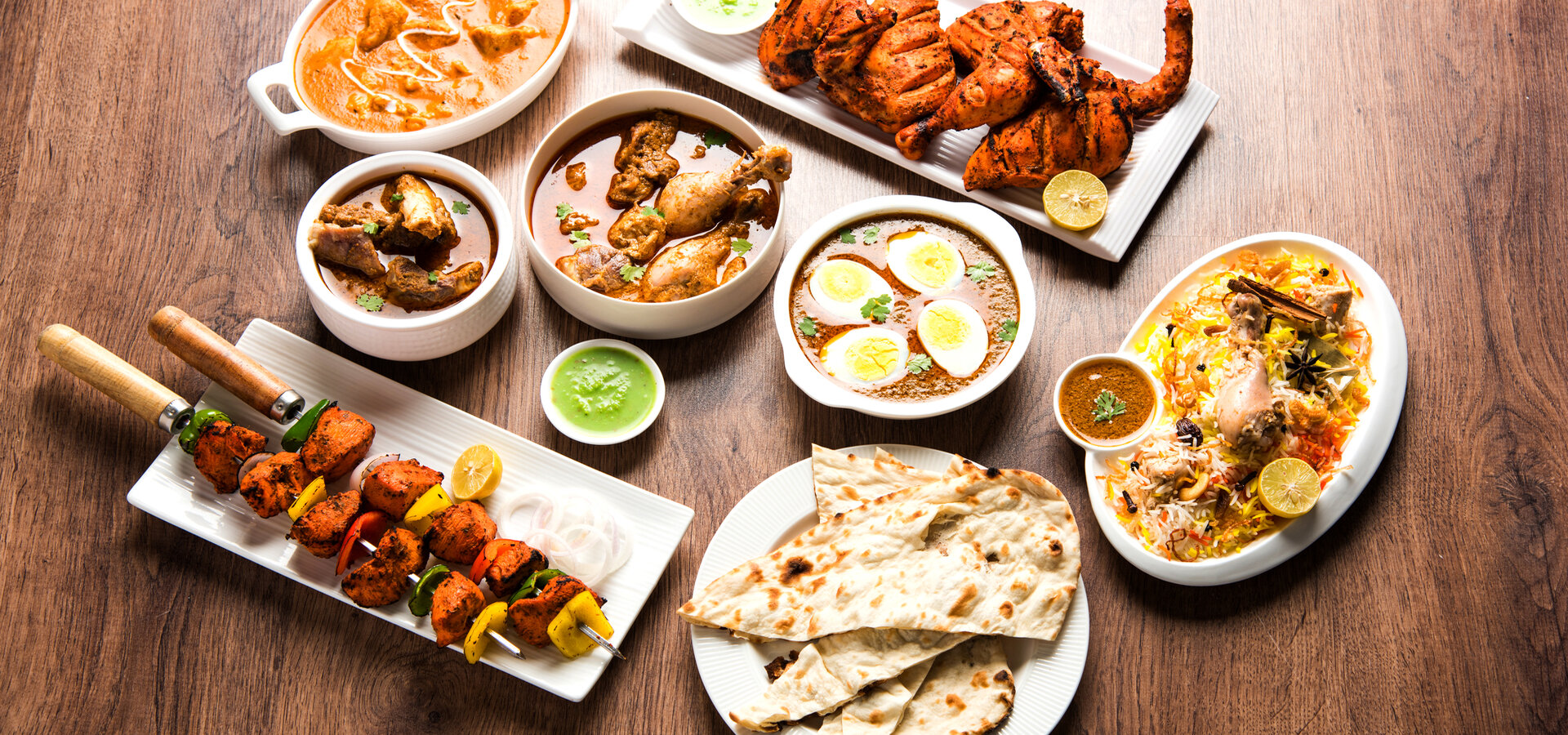
Mughalai Cuisine:
A rich and royal cuisine with Persian influences, Mughlai food includes creamy curries, kebabs, and biryanis, often garnished with nuts and dried fruits.
Punjabi Cuisine:
Known for its hearty and robust flavors, Punjabi cuisine features dishes like butter chicken, sarson ka saag, and tandoori breads, with a focus on dairy products.
Rajasthani Cuisine:
Defined by its use of dried spices, ghee, and legumes, Rajasthani cuisine offers dishes like dal baati churma, gatte ki sabzi, and rich sweets like ghewar.

Uttar Pradesh Cuisine:
A blend of Mughlai and North Indian flavors, Uttar Pradesh cuisine is known for kebabs, kachori, and sweets like petha, with rich gravies and bread varieties.
Cuisine Dishes








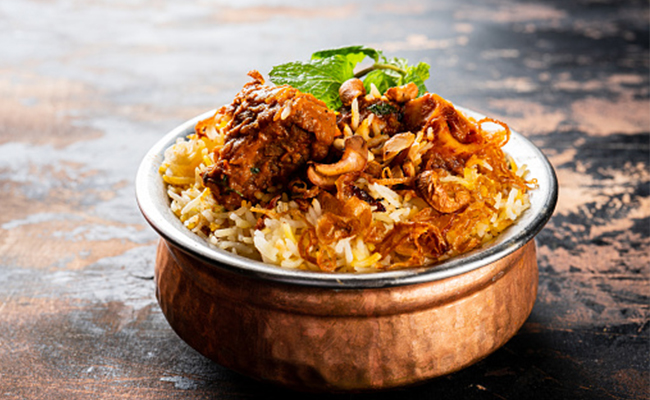

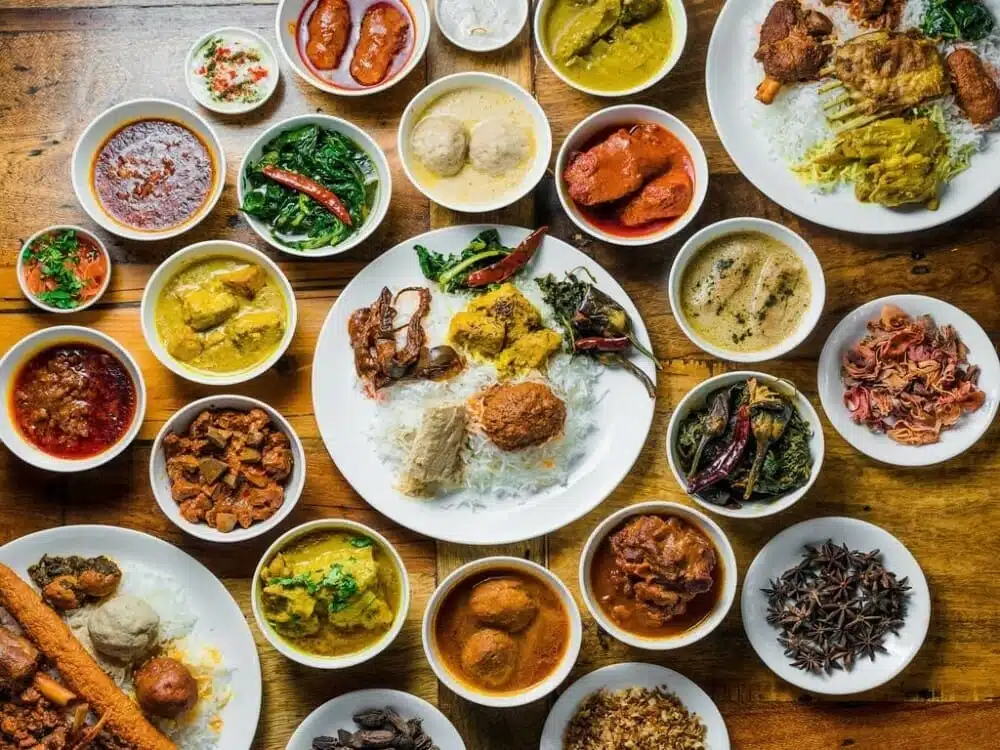
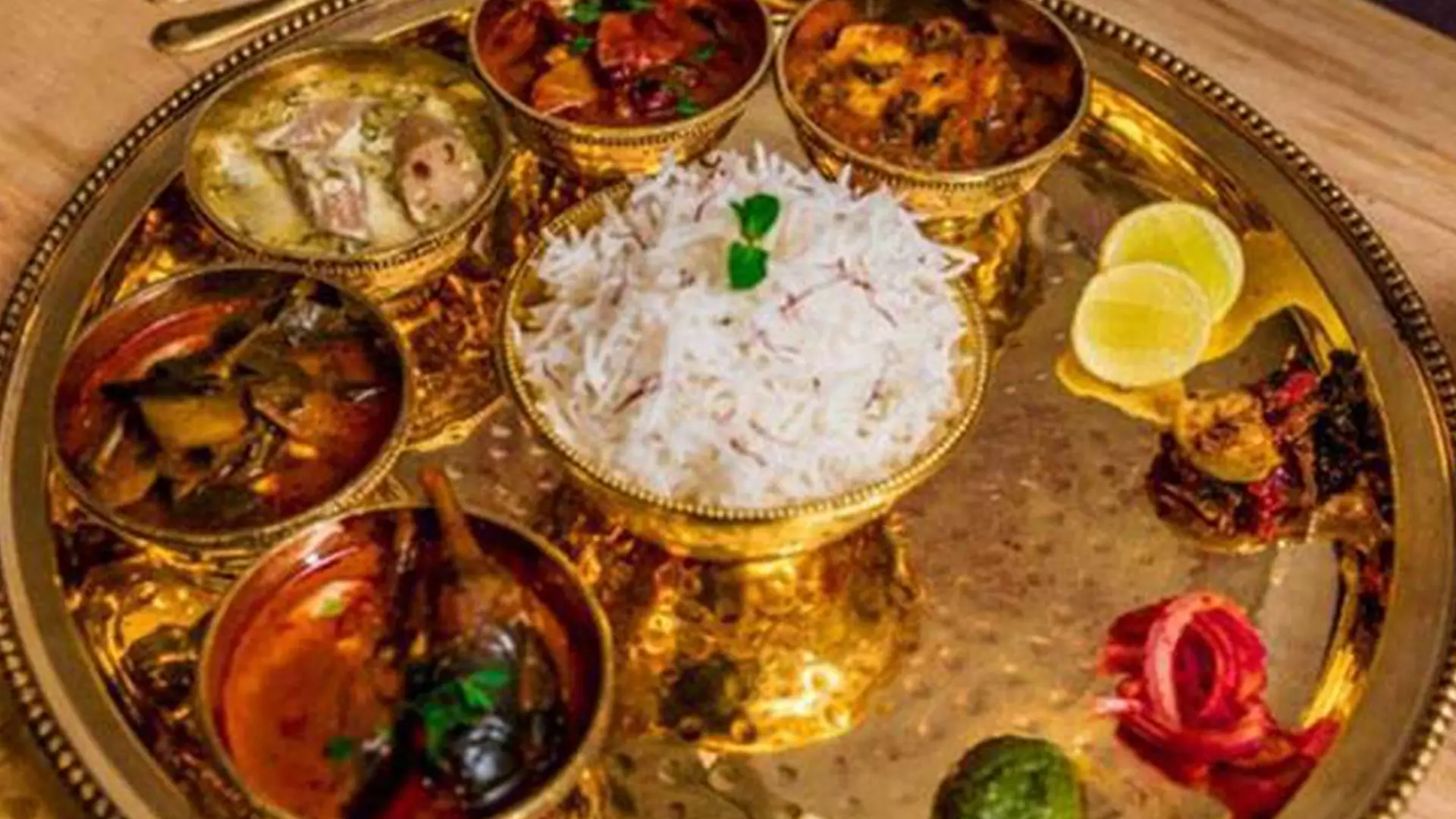
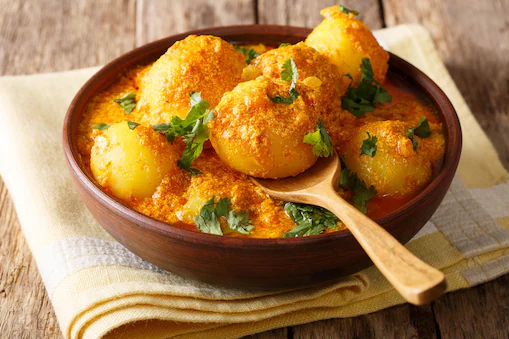






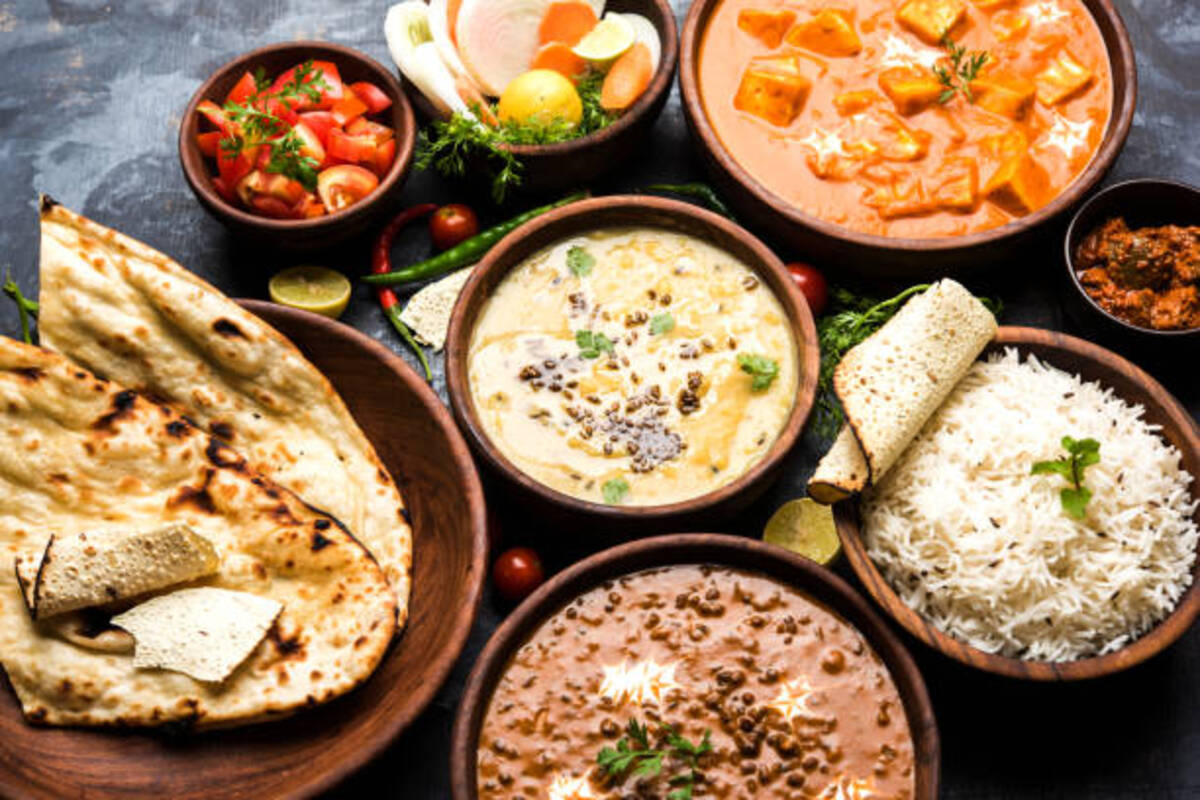


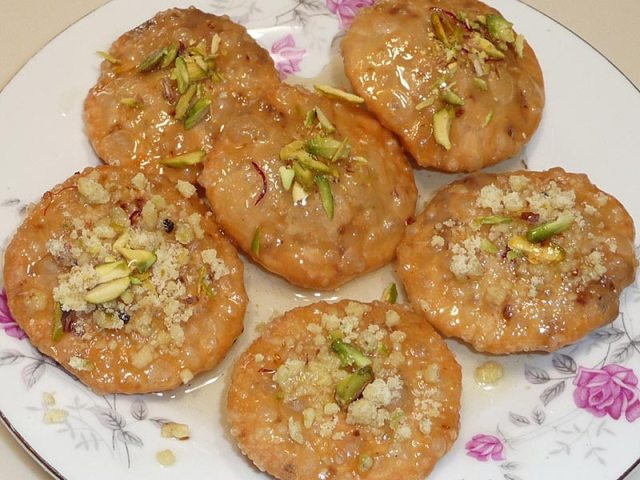

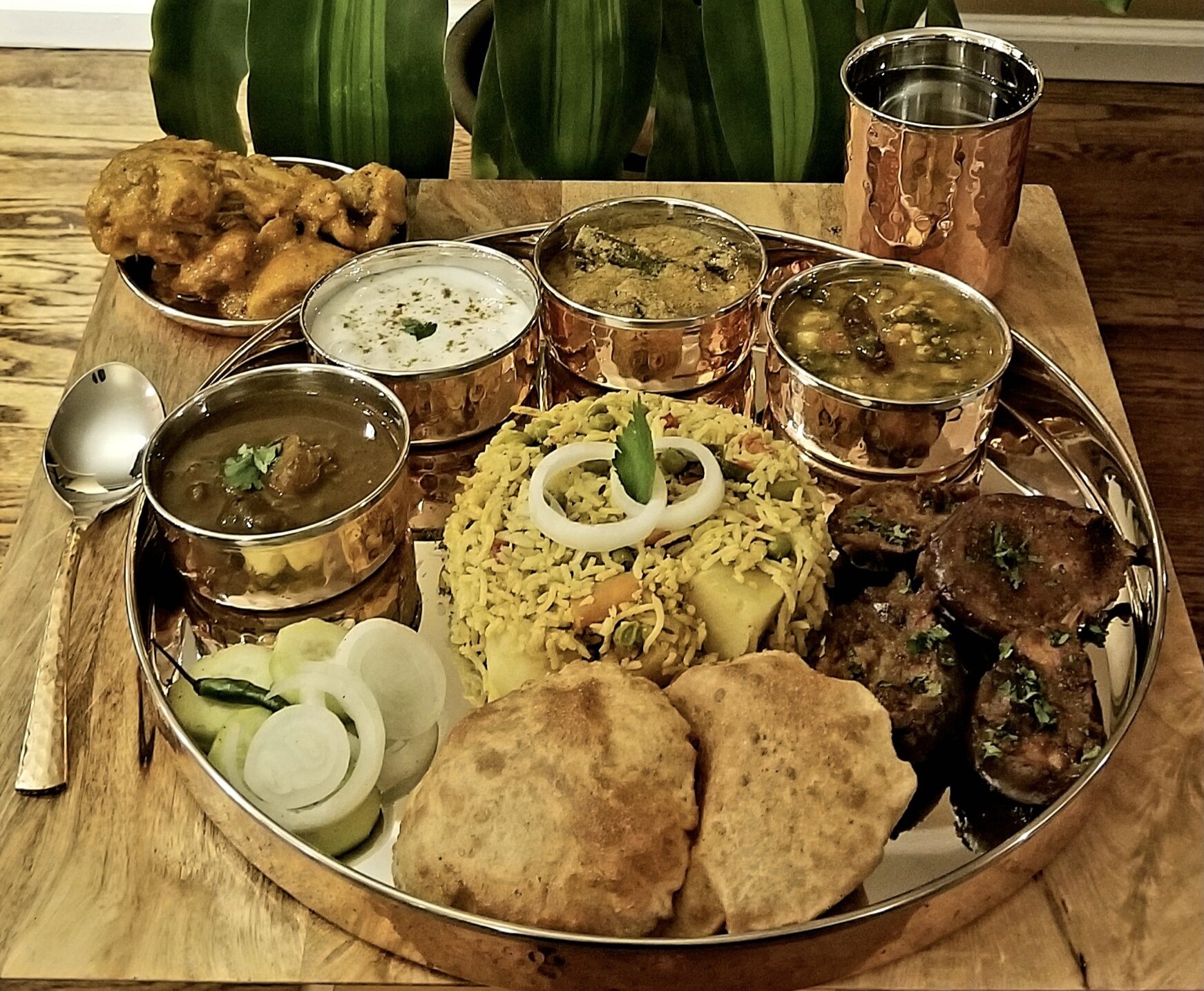



























About Us
Culinary traditions in Indian cuisine are a reflection of the country's vast diversity, rich heritage, and cultural influences. Indian food is renowned for its use of a wide variety of spices, herbs, and fresh ingredients, creating a complex tapestry of flavors. The culinary practices differ significantly across regions, from the rich, creamy gravies of North India, like butter chicken and paneer dishes, to the lighter, rice-based cuisines of the South, such as dosas, idlis, and sambars.
Staples include rice, wheat, and lentils, with dishes often accompanied by chutneys, pickles, and yogurt. Popular Indian cooking methods include grilling (tandoori), frying (deep and shallow), and slow-cooking curries. Many dishes are vegetarian due to religious influences, particularly in Hinduism and Jainism, though non-vegetarian options are also prominent, especially in coastal regions where seafood is abundant.
Indian street food, like samosas, chaat, and pakoras, is famous for its bold, tangy flavors. Overall, Indian culinary arts emphasize balance in spices and flavors, with attention to textures, aromas, and presentation, creating a harmonious and memorable dining experience.
Frequently Asked Questions
- Turmeric:Adds a golden color and earthy flavor.
- Cumin:Used in whole or ground form for a warm, nutty taste.
- Coriander:Provides a mild, lemony flavor.
- Cardamom:Both green and black cardamom are used for aromatic sweetness or smoky flavors.
- Garam Masala:A blend of ground spices such as cinnamon, cloves, and black pepper.
- Chili Powder:Adds heat and spiciness.
- North Indian cuisine:Often characterized by rich, creamy curries, use of dairy products (like paneer, yogurt, and ghee), and dishes like naan, roti, and biryani. Common ingredients include wheat and lamb.
- South Indian cuisine:Features lighter dishes with rice as the staple grain, coconut, and lentils. Popular dishes include dosa, idli, sambar, and rasam. The use of tamarind, coconut oil, and mustard seeds is more frequent.
- Main dish:Either a vegetarian curry (like paneer butter masala) or a meat-based dish (like chicken curry or lamb rogan josh).
- Staples: Roti (flatbread), naan, or rice.
- Sides:Lentil-based dishes like dal, and vegetable sides like aloo gobi (potatoes and cauliflower).
- Condiments:Pickles, chutneys, and yogurt (raita).
- Dessert:Sweets like gulab jamun or kheer (rice pudding).
